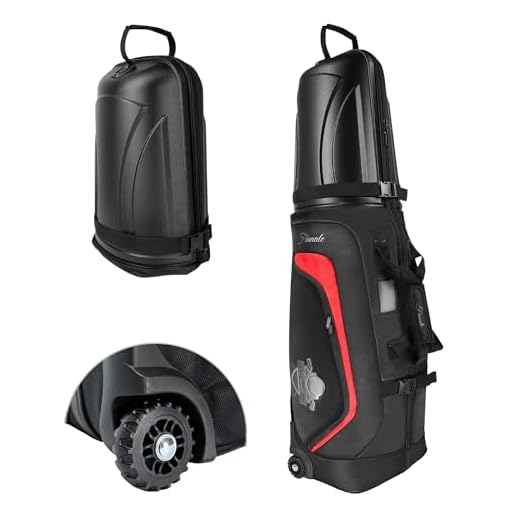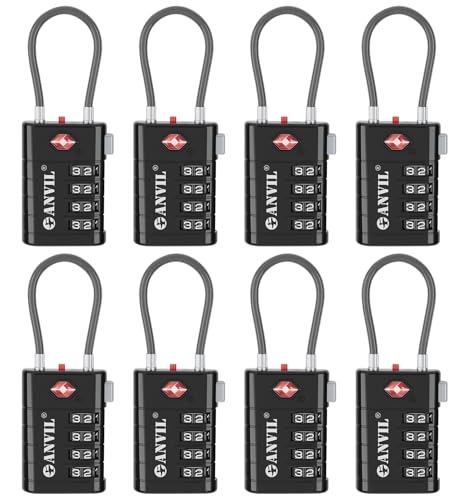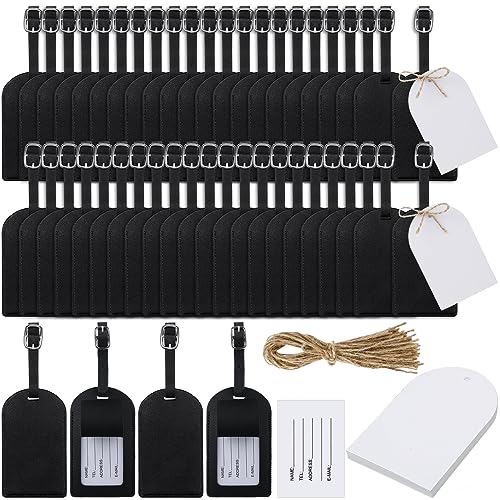







The decision to safeguard your belongings while traveling abroad is a prudent one. Many airlines and security agencies around the globe advocate for the use of robust mechanisms to protect your items. While the primary goal is to deter theft, additional benefits include minimizing the risk of unintentional access during transit.
Statistics reveal that a significant percentage of passengers face issues with their checked items, ranging from lost bags to tampering. According to a report by the 2021 SITA Baggage IT Insights, approximately 5.57 bags per thousand passengers were mishandled in 2019. To reduce the risk of encountering theft or similar problems, opting for reliable sealing methods is advisable.
Be mindful of local regulations regarding baggage security measures. Certain countries may have restrictions on the types of closures allowed. Utilizing approved locks not only ensures adherence to regulations but also provides peace of mind as you navigate through busy terminals and unfamiliar cities.
It is also crucial to choose high-quality materials for your protective devices. Non-compliant or flimsy options can be easily bypassed, rendering your efforts ineffective. Investing in durable solutions can serve as a solid deterrent against potential thieves while ensuring your items remain intact until you reach your destination.
Securing Your Bags During Travel
Engaging a mechanism for securing your bags can provide peace of mind. However, it’s vital to consider the regulations of your destination. Certain countries have stipulations regarding the use of locks, particularly those that require TSA-approved mechanisms. These locks allow customs officials access without damaging your property.
Benefits of Using a Security Mechanism

Implementing a security measure may deter opportunistic theft. It sends a signal to potential wrongdoers that valuables are present and protected. Furthermore, a visible deterrent can lead to a more secure travel experience for you and other passengers.
Potential Downsides
Using a non-TSA compliant lock might result in baggage being forcibly opened, leading to damage. Additionally, if you’re traveling with fragile items, relying solely on a securing mechanism isn’t a foolproof strategy. Consider packing valuable or delicate belongings in less conspicuous areas of your bags.
Ultimately, while taking precautions is wise, ensuring the safety of your possessions also depends on common sense practices. Avoid displaying high-value items and consider obtaining high-quality travel gear, such as the best beach umbrella anchors for added protection during outdoor events.
Understanding Airline Security Policies on Locked Luggage
Consult the specific regulations of the airline prior to your trip, as policies regarding secured bags can differ significantly. Many carriers allow the use of approved devices, often referred to as TSA-approved locks, which can be opened by authorized personnel during security screenings without damaging the bag.
Here are key points regarding security regulations:
- Familiarize yourself with the Transportation Security Administration (TSA) guidelines if traveling to or from the United States, as they dictate which locking mechanisms are permissible.
- Ensure that any fastening mechanism used complies with international airport safety standards to avoid confiscation at security checkpoints.
- Note that airline personnel may need to access your belongings for security inspections, and locking devices that cannot be opened by security staff can result in forced opening or damage to your property.
- Some regions and airlines may recommend against securing bags to facilitate thorough inspections, especially in high-risk areas.
Always review your airline’s official website or contact customer service for the most accurate and relevant information related to your travel plans.
Pros and Cons of Securing Your Suitcase for Air Travel
Pros: Enhanced protection against theft is a major advantage of securing your suitcase. A properly fastened case can deter opportunistic thieves, making it less likely that your belongings will be tampered with during transit. Additionally, some modern fastening mechanisms come with high-tech features, such as approved security options, that allow authorities to inspect your items without damaging the case.
Another benefit is peace of mind. Knowing your belongings are secured can significantly reduce travel-related stress, allowing you to focus on other aspects of your trip. Furthermore, a distinctive fastening system can help identify your personal items among many similar cases at the baggage claim, enhancing your chances of retrieving your belongings promptly.
Cons: One downside involves potential issues during security inspections. If a case is secured tightly, airport personnel may be forced to break it open for inspection, potentially damaging your property. Additionally, secured cases can lead to delays in baggage handling if staff cannot access them easily.
Moreover, some airlines have specific policies regarding case fastening that could prevent you from using your preferred method. It’s vital to be aware that regulations may vary by airline and destination, which could make it necessary to forgo securing your suitcase altogether to comply with security protocols.
Recommended Luggage Locks for International Flights

Using TSA-approved combination locks is advisable for securing bags on international trips. These locks allow security personnel to check your items without damaging them. A reliable option is the Master Lock 4687D, which features a 3-digit combination system and is robust against tampering.
Another notable choice is the Forge TSA-Approved Lock. Its adjustable shank fits various zippers and provides a durable structure. It boasts a 4-digit combination, offering increased protection through more possible combinations.
For those preferring keyed locks, consider the Travel Sentry Lock. This option is built for strength and has an easy-to-use key mechanism. This product is also TSA-approved, ensuring that airport security teams can open them safely.
Using cable locks, such as the AmazonBasics Cable Lock, can also be effective. This type offers flexibility while securing multiple bags or compartments, making it a viable option for travelers with complex packing needs.
Examining user reviews before purchasing is essential. Opt for locks that are praised for durability and security features, ensuring peace of mind throughout your travels.
What to Do If Your Locked Bag Gets Damaged
Contact the airline immediately upon discovering any issues with your secured suitcase. Document the damage with clear photographs and take notes about the condition of your item for reference. Submit a report through the airline’s official claims process for damaged baggage.
Review the airline’s policy regarding compensation for damaged possessions. Many carriers will offer reimbursement based on their specific guidelines, which may include repair costs or a cash settlement.
Preserve all receipts related to repairs or replacements. This documentation will support your claim. If necessary, reach out to the manufacturer of your bag for assistance, as warranty coverage may apply to certain types of damage.
Consider using protective coverings during transit to minimize potential harm. Additionally, explore options for comprehensive insurance to cover losses or damages in the future, ensuring your belongings are better protected.
It may be beneficial to research the best products available if you need to clean or maintain your items, similar to seeking out best auto wash to use for sun joe pressure washer for optimal performance. This can enhance the longevity of your belongings.
Alternatives to Traditional Locks for Luggage Security
Consider using TSA-approved combination numbers. These allow security personnel to access bags without damaging them while providing a secure mechanism against unauthorized access. Combinations can be easily changed, adding another layer of adaptability.
Utilize cable ties as a simple yet effective solution. They are lightweight, inexpensive, and can deter tampering. Once you reach your destination, they can be easily removed without fuss.
Explore smart luggage technology. Many brands now offer suitcases with built-in security features, including GPS tracking and biometric locks. This technology provides added assurance through real-time location tracking and can alert owners to unauthorized access attempts.
Consider anti-theft backpacks or bags designed with reinforced materials and secure zippers. These can help prevent pickpocketing and unauthorized entry while maintaining mobility.
Employ tamper-evident seals, which indicate if someone has accessed your items. This serves as a deterrent and alerts you to any potential security breaches upon arrival.
For those traveling with valuable items, using a portable safe can be a worthwhile investment. These compact devices can secure electronics, jewelry, or important documents, ensuring peace of mind throughout the journey.
Lastly, always maintain an inventory of your belongings. Documenting contents with photos or lists can significantly aid in addressing any issues that arise, should security concerns occur.
How to Secure Valuables Inside Luggage While Traveling
Utilize packing techniques to ensure valuables remain safe. Keep important items centrally positioned within the bag and surrounded by clothing or similar materials to prevent movement and potential damage.
Consider using travel organizers and pouches, which allow for better management of small items. These can be placed in easily accessible pockets, minimizing the need to rummage through the main compartment frequently.
For electronics, opt for cases with padding and secure them within the soft sections of your bag. Avoid placing high-value items near the exterior, making it more challenging for thieves to access them.
Employing a dual-layer approach provides extra security. Wrap valuables in a layer of clothing and place them inside a locked compartment if your bag features one, enhancing protection significantly.
Labels or tags can be beneficial, as they help in the swift recovery of lost items. Ensure these are secured inside rather than sticking out, as external tags can provide information to potential thieves.
Utilize a combination of methods rather than relying on a single system. Balancing various strategies allows for an effective approach to safeguarding your belongings.
| Item Type | Recommended Packing Method | Security Tip |
|---|---|---|
| Electronics | Padded case, surrounded by clothing | Keep in the inner compartments |
| Jewelry | Small, secure pouches | Avoid displaying during transit |
| Documents | Folder or organizer | Store in a hidden pocket |
| Cash/Valuable Cards | Money belt or hidden pouch | Always keep on your person |
For those transporting camera gear, consider the best camera backpack for travel half and half, designed specifically for secure and organized storage.
FAQ:
Is it safe to lock my luggage when flying internationally?
Locking your luggage can provide a sense of security, but it is not without its risks. Many airports have policies that allow security personnel to open your luggage for inspection. If your suitcase is locked, they may damage the lock or the luggage itself in order to complete the inspection. Additionally, some airports recommend using approved locks that can be opened by security staff without damage. It’s advisable to check the regulations of the airline and the countries you’re traveling to before locking your luggage.
What type of lock should I use for my luggage?
When selecting a lock for your luggage, consider using a TSA-approved lock. These locks have a special mechanism that allows security officers to open them with a master key if necessary. This prevents potential damage to your luggage during inspections. Be cautious with non-TSA locks, as they may be cut off if security needs to inspect your bag. Additionally, a durable combination lock can offer convenience, as you won’t need to carry a key.
What are the risks of leaving my luggage unlocked?
Leaving your luggage unlocked increases the chance of theft or tampering. While most travelers are honest, airports can be crowded and luggage can sometimes be mistaken for someone else’s. Valuables in unlocked bags are more susceptible to being taken. However, an unlocked suitcase also allows security teams to inspect the contents without causing damage. Striking a balance between security and accessibility is key. Consider removing expensive items from your bag and keeping them with you.
Are there any alternatives to locking luggage for security?
If you’re hesitant to lock your luggage, there are several alternatives to enhance security. Use luggage straps or brightly colored tags that can deter theft by making your bag less appealing to steal. Packing valuable items like electronics in your carry-on is another good option. Additionally, consider insurance for your luggage, which can provide peace of mind. Always be aware of your surroundings and keep an eye on your belongings, especially during layovers or in crowded areas.









